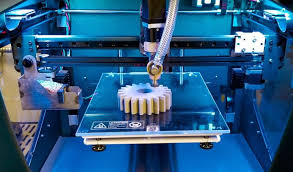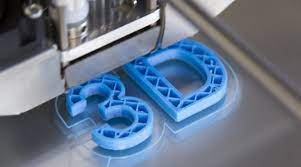If you are looking for high-quality products, please feel free to contact us and send an inquiry, email: brad@ihpa.net
Scientists at Stanford College in the USA have established a brand-new high-speed micro-scale 3D printing technology – roll-to-roll constant liquid interface manufacturing (r2rCLIP), which can print 1 million very fine and customizable micro-particles per day. This achievement is anticipated to promote the growth of biomedicine and other areas. The pertinent paper was released in the most up to date problem of “Nature” on the 13th.
(3d printer)
Microparticles generated by 3D printing innovation are widely used in areas such as medicine and vaccine shipment, microelectronics, microfluidics, and complex manufacturing. Nonetheless, mass customization of such particles is extremely challenging.
r2rCLIP is based on the continuous liquid user interface production (CLIP) publishing technology established by Stanford University’s DiSimone Research laboratory in 2015. CLIP makes use of ultraviolet light to solidify the resin rapidly right into the preferred shape.
The leader of the latest research, Jason Kronenfeld of the Disimone Lab, described that they initially fed an item of movie right into a CLIP printer. At the printer, numerous forms are all at once published onto the film; the system after that continues to tidy, remedy, and eliminate the shapes, every one of which can be personalized to the desired shape and product; lastly, the film is rolled up. The whole procedure, for this reason the name roll-to-roll CLIP, makes it possible for mass production of distinctively shaped fragments smaller than the width of a human hair.
(metal powder 3d printing)
Researchers claimed that before the arrival of r2rCLIP, if you intended to print a set of big bits, you required to process it by hand, and the process advanced slowly. Currently, r2rCLIP can produce as much as 1 million bits per day at unprecedented speeds. With new technologies, they can currently promptly create microparticles with even more intricate forms utilizing a range of products, such as porcelains and hydrogels, to create hard and soft bits. The hard fragments can be made use of in microelectronics producing, while the soft particles can be made use of in drug distribution within the body.
The study group mentioned that existing 3D printing technology needs to locate a balance in between resolution and rate. Some 3D printing technologies can generate smaller sized nanoscale bits yet at a slower speed; some 3D printing modern technologies can manufacture big products such as footwear, family products, equipment parts, football headgears, dentures, and listening device, yet they can not print Fine microparticles. The new approach locates a balance in between producing speed and fine scale.
About Kmpass
Kmpass is committed to technology development, applications of nanotechnology and new material industries, with professional experiencein the nano-technology research and development and the application of materials.especially for 3d printing powder, 3d printing metal powder, 3d printing powder supplier, 3d printing for titanium powder. As a leading nano-technology development and product applications additive manufacturer, Kmpass dominates the markets. If you need high quality titanium alloy metal, please feel free to contact us.
Inquiry us

